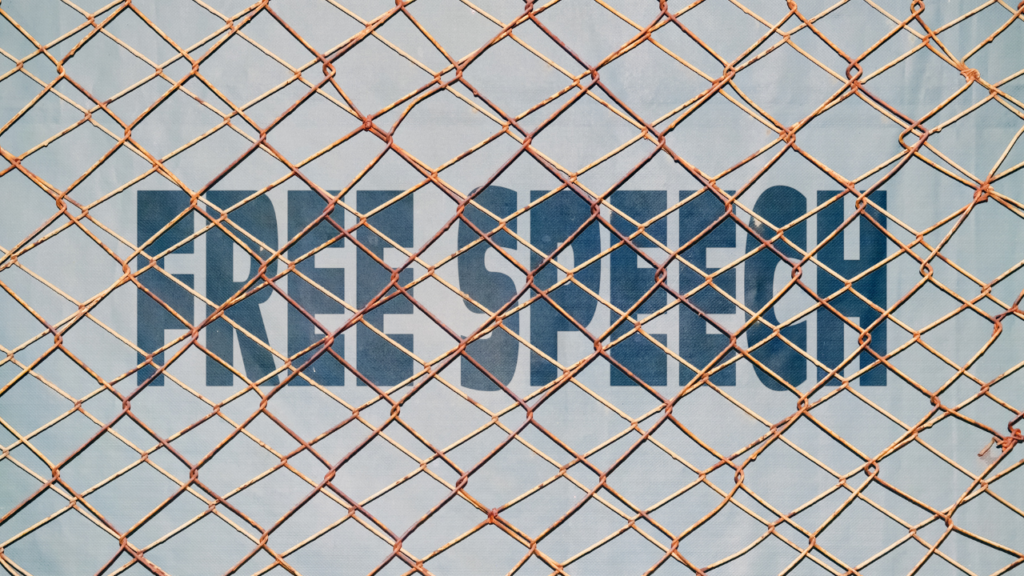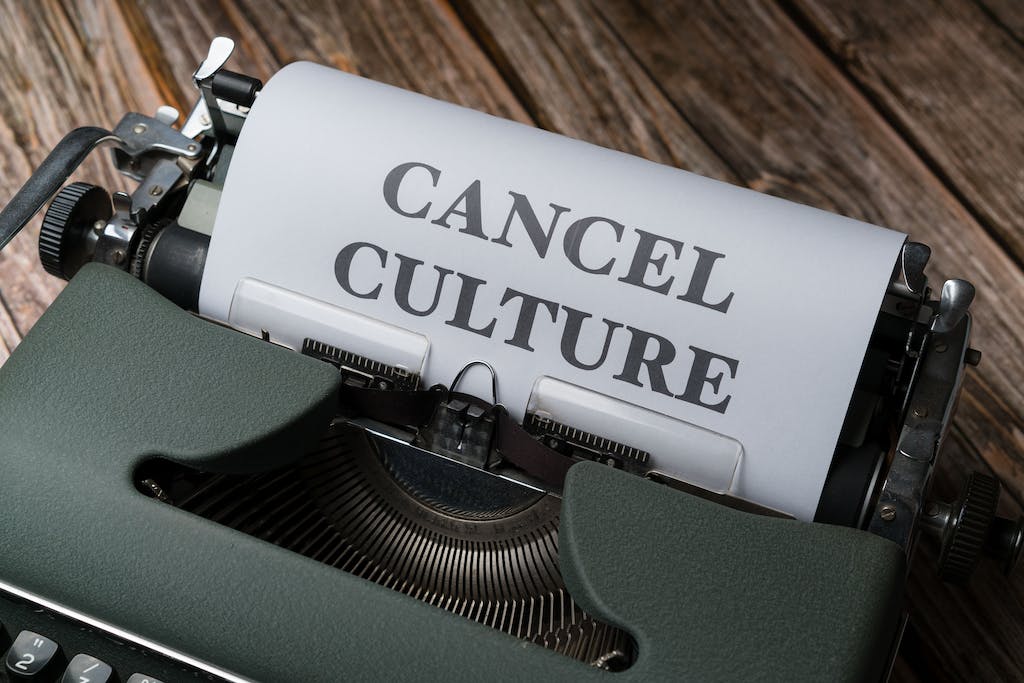Reasons Not To Participate In Cancel Culture
Cancel culture, a term that has rapidly permeated our social vocabulary, often reflects poorly on the public that participates in it the most, it encourages mob mentality and can push people to do things even worse and affect them worse than the person they are trying to cancel.
While it occurs as a public response asking for someone to be accountable, it promotes a mob mentally, that encourages decision making based on social pressure, rather than informed judgement.
Treating those people ‘cancelled’ as less than and can have a severe impact on their mental health, it also often oversimplifies complex issues. Individuals calling to boycott or ostracize people, usually public figures, or brands for behaviour they deem inappropriate or offensive. This mob mentality often also ostracizes people who do not agree with their morals and or take part with their actions.
This often happens on social media platforms, where the speed and reach of public opinion can have immediate and far-reaching effects.
Participating in cancel culture can be problematic for several reasons:
- Limits Free Speech: It often leads to self-censorship, stifling diverse opinions and open dialogue, which are vital for a healthy democratic society.
- Mental Health Impact: Both those being canceled and those participating in cancel culture can experience negative psychological effects, including stress, anxiety, and a hostile online environment.
- Oversimplification of Issues: Cancel culture reduces complex issues to black-and-white narratives, overlooking the nuances and context essential for understanding and resolving these issues effectively.
- Promotes Mob Mentality: It encourages herd behavior and decision-making based on social pressure rather than informed judgment, leading to potential injustices.
- Hinders Growth and Redemption: Cancel culture often denies individuals the opportunity to learn from their mistakes, grow, and contribute positively in the future.
- Risk of Misuse: It can be exploited for personal vendettas or lead to unwarranted harm through false accusations, impacting innocent lives.
Encouraging constructive dialogue, critical thinking, and empathy are healthier and more effective approaches to addressing societal issues. While cancel culture can cause big changes, sometimes it happens before the individual can even address or clarify the situation as well that might have been a misunderstanding. Leading to public disgrace for a situation they did not deserve as well.
Key takeaways
- Cancel culture stifles free speech and prevents the healthy exchange of diverse ideas.
- It can have detrimental effects on mental health and promotes a divisive, hostile online environment.
- Encouraging open dialogue, empathy, and critical thinking offers a more constructive approach to societal issues.
Examples of cancel culture backfiring
When A Nation Turned Against A Korean Girl Group Due To False Allegations
T-ara was cancelled for bullying one of their team members at the peak of their career, when everything came crashing down. One of their members, Hwayoung, accused them or bullying her. They were harassed online with death threats, and they were quickly boycotted by many, resulting in much fewer opportunities to promote, after cancel culture began.
However, it was only later after the damage had been done, that the bullying rumours were revealed to be untrue allegations, based on evidence provided by Staff and the people who were always around T-ara. In fact, it was Hwayoung’s behaviour that often had to be corrected as she was very rude to the staff around her.
This is an example of how people easily rush to judge, condemn without waiting for context, evidence, background information. Along with the echo chamber effect and societal pressures to also condemn them, most of Korea turned against T-ara.
False Rumours Regarding Skincare Brand, Anua
With the rise of Tiktok, cancel culture has become more and more proliferate. It is justified that people want brands to be held accountable for their actions however, information spreads like wildfire, true or not.
Information started circulating that Anua was a “industry plant” and that they hired clinical professionals to speak about their brand for them. This information fuelled backlash on tiktok, resulting in many influencers taking their Anua skincare products and throwing them in the trash, showing themselves talking how they dislike Anua now and how disappointed they are in the brand.
Anua quickly came out with a statement and evidence that showed the information circulated was false and that the public was confusing them with a different brand as well.
Many influencers and individuals quickly deleted their old posts, not addressing their rash behaviour and continuing to post other topics. However, they also damaged their own reputation and opportunity with the brand in the future, not to mention it shows how quickly they react to news without waiting for all the facts from each side.
Professor Fired For Teaching Human Biology
Liberal students are completely allowed to have their own morals and free thinking. However instances where professors get fired for teaching human biology and enforcing the male and female anatomy has been occurring more and more frequently. Especially in universities that hold a certain political stance.
This is detrimental to society as cancel culture is very proliferate in this aspect of university life, it makes it hard for society to continue functioning based on biological facts, and encourage discussion, instead professors have to tiptoe around societal pressures rather than simply focusing on teaching.
The Erosion of Free Speech

Limiting Open Dialogue
One of the most significant consequences of cancel culture is its chilling effect on free speech. When individuals fear being publicly shamed or boycotted for their opinions, they may choose to self-censor.
This self-censorship not only stifles personal expression but also limits the diversity of viewpoints in public discourse. A society thriving on robust debate and the exchange of ideas finds itself at risk when members prefer silence over the potential backlash.
Examples and Consequences
Consider university professors that have been fired because they discussed controversial topics. Or a writer who decides against publishing a potentially divisive opinion piece. These are instances where the fear of being canceled leads to a tangible loss in the richness of our collective conversations.
The foundational principle of free speech underpins the ability to challenge and discuss different perspectives, pushing people to think outside of the box and develop society further. When this is compromised, societal progress may stagnate.
Political and Social Movement Boycotts: Specific political or social movements have often called for boycotts to push their agenda. For instance, there might have been calls to boycott certain states or companies in response to legislation that was seen as discriminatory or harmful to specific groups. These boycotts were not just limited to the U.S. but occurred globally, reflecting the interconnectedness of social and political issues.
It Is Unfair To Assume That They Have To Abide By Your Values
Depending on the situation, cancel culture can arise simply because of a photo. Take Sydney Sweeney for example, she recently underwent a lot of criticism and cancel culture simply because she uploaded a photo with family members who wore Trump hats.
With such divided political views, whether you agree with her family or not, you also do not know if she agrees with her family or not. She is not in control of how her family behaves or what they believe in, the same way that the public should not be in control of how she behaves or what she believes in.
Protecting Democratic Values
The protection of free speech is not just about preserving individual rights; it’s about safeguarding the democratic process. Democracy thrives on the open exchange of ideas, and cancel culture can act as a deterrent to this. Encouraging a culture where differing opinions can be expressed freely and respectfully is crucial for the health and vitality of any democracy.
The Impact on Mental Health

Psychological Effects
The mental health implications of cancel culture are profound, both for the individuals who are canceled and those who participate in the canceling. Those at the receiving end often experience intense public scrutiny, social ostracism, and personal attacks, which can lead to anxiety, depression, and a sense of isolation.
For the cancelers, the constant engagement in negative online behavior can foster feelings of anger and hostility, impacting their mental wellbeing.
Rise of Online Harassment
Cancel culture has inadvertently normalized online harassment. What starts as a call for accountability can quickly escalate into a barrage of hate and personal attacks. This environment can be particularly harmful to young people, who are more vulnerable to the effects of cyberbullying. The lasting impact on an individual’s mental health can be severe, leading to long-term consequences.
Lack of Forgiveness and Rehabilitation:
Cancel culture does not leave room for forgiveness or rehabilitation. Once someone is cancelled and boycotted, there’s usually little opportunity for them to lean from their mistakes, apologize genuinely and make amends. Often we see that online apologies are not accepted, they are parodied, comments lack forgiveness and awareness of the entire situation this is largely part to echo chambers and polarization.
Echo Chambers and Polarization
Those involved in cancel culture often end up in echo chambers, interacting only with those who share their views, anyone who does not share their views is entirely wrong and to be argued with, leading to negative emotions. This results in participants only wanting to talk to people who agree with them, leading to increased polarization and a breakdown in the ability to engage in constructive dialogue with those holding different viewpoints.
Importance of Empathy
In navigating the digital world, empathy and understanding become crucial. Before joining a cancel culture movement, it’s important to consider the human behind the screen.
Not to mention, being part of a constant cycle of outrage can be emotionally draining for participants. It can lead to a negative worldview and contribute to a more divisive and less empathetic society.
Understanding that people make mistakes, and acknowledging the potential for growth and learning, is key. Promoting a more empathetic approach to how we interact online can pave the way for healthier, more constructive social exchanges.
The Oversimplification of Complex Issues

Reducing Nuanced Discussions
One of the critical pitfalls of cancel culture is its tendency to simplify complex issues. In the rush to judge and condemn, the nuances of context, intent, and background often get lost. This black-and-white thinking fails to acknowledge the multifaceted nature of most social, political, and personal issues. When we reduce these discussions to simple right or wrong narratives, we miss the opportunity to engage with the issue’s complexities and overlook potential learning moments.
The Danger of Ignoring Context
Context is crucial in understanding any situation. Cancel culture often ignores the historical, cultural, or personal context in which a statement or action was made. Without considering these aspects, we risk making uninformed judgments that may not accurately reflect the situation’s reality. This lack of context can lead to unfair consequences for those being canceled and a distorted understanding of the issue among the public.
Engaging with Complexity
To foster a more informed and empathetic society, it is essential to engage with the complexity of issues. Encouraging open discussions that explore different facets of a topic, acknowledging the grey areas, and accepting that there may not always be a clear-cut answer are steps towards a more nuanced and mature public discourse.
The Problem of Mob Mentality

Herd Behavior and Uncritical Thinking
Cancel culture often gives rise to a mob mentality, where individuals collectively jump to conclusions without fully understanding the issue. This herd behavior can lead to uncritical thinking, where decisions are based more on the emotional pull of the group than on factual evidence or rational deliberation. The fear of going against the group can further suppress dissenting or moderate voices, leading to a one-sided narrative.
Risks of Decision-Making Based on Social Pressure
Decisions made under social pressure, especially in the emotionally charged environment of social media, can often be misguided. The desire to fit in or be part of a movement can overshadow the need for individual critical analysis. This can lead to situations where people support actions or beliefs that, upon reflection, they might not agree with. The influence of social pressure in cancel culture can therefore lead to unjust outcomes and a lack of personal accountability.
The Need for Individual Critical Thinking
In the age of digital information, where opinions and news travel fast, the importance of individual critical thinking cannot be overstated. It is crucial to assess information critically, consider multiple viewpoints, and form opinions based on reasoned analysis rather than emotional reaction or group influence. Promoting critical thinking skills is essential in navigating the complexities of online interactions and public discourse.
The Lack of Redemption and Growth Opportunities

Permanent Digital Footprints
In the digital age, mistakes can leave permanent marks. Cancel culture often disregards the human capacity for growth and learning, holding individuals indefinitely accountable for past actions.
This permanent digital footprint can hinder personal and professional growth, as past missteps are perpetually available for public scrutiny. It creates a culture where individuals are defined by their worst moments, rather than their journey towards improvement.
The Importance of Forgiveness
Forgiveness is a vital component of a compassionate society. It acknowledges that people can change and learn from their mistakes. In the context of cancel culture, allowing space for redemption encourages personal responsibility and growth. It fosters an environment where individuals can make amends and work towards positive change, rather than being forever cast out for past errors.
Successful Redemption Stories
There are numerous instances where individuals have successfully redeemed themselves after public scrutiny or backlash. These stories often involve acknowledgment of the mistake, sincere apologies, and demonstrable efforts to learn and improve. These cases highlight the potential for positive change and the power of forgiveness and understanding in society. They serve as reminders that everyone deserves the opportunity to grow and that a path back should always be available.
The Misuse of Cancel Culture for Personal Gain

Exploitation for Personal Vendettas
A worrying trend in the realm of cancel culture is its exploitation for settling personal scores. Individuals or groups sometimes use the momentum of cancel culture to target someone they disagree with or dislike, irrespective of the validity of their claims. This misuse undermines the original intent of holding people accountable and instead turns it into a tool for personal retribution.
Risk of False Accusations
The ease with which accusations can spread on social media presents a significant risk of false claims gaining traction. In the rush to judge and act, the critical step of verifying facts often gets overlooked. The impact of false accusations can be devastating, leading to irreparable damage to a person’s reputation, career, and personal life. It’s vital to approach accusations with a sense of responsibility and a commitment to truth.
Need for Accountability in Public Discourse
Public discourse, especially in the age of social media, requires a high level of accountability. It’s essential for individuals and communities to fact-check, respect privacy, and avoid jumping to conclusions without substantial evidence. Promoting a culture of accountability ensures that the power of social media and public opinion is used responsibly and constructively.
Alternatives to Cancel Culture

Promoting Constructive Dialogue
One of the most effective alternatives to cancel culture is fostering an environment of open and constructive dialogue. This involves creating spaces where different opinions can be expressed and debated respectfully. Encouraging empathetic listening and understanding, rather than immediate judgment, can lead to more productive conversations and a deeper understanding of diverse perspectives.
The Role of Education and Informed Debate
Education plays a crucial role in developing critical thinking skills and promoting informed debate. By educating individuals on the complexities of social issues, the importance of context, and the value of diverse viewpoints, we can create a more informed public. Informed debate involves not just presenting facts but also understanding the emotional and human elements of issues, allowing for a more holistic approach to discussions.
Steps for Healthy Online Behavior
In the digital age, it’s important to practice healthy online behavior. This includes:
- Fact-Checking: Always verify the information before sharing or acting on it.
- Respecting Privacy: Avoid spreading personal information that could harm someone’s privacy or safety.
- Avoiding Impulsive Reactions: Take time to reflect before responding to controversial issues.
- Promoting Positive Interactions: Use social media to spread positivity and constructive feedback.
- Seeking Diverse Perspectives: Actively look for different viewpoints to broaden your understanding.
By adopting these practices, individuals can contribute to a more balanced, fair, and empathetic online environment, moving away from the divisive nature of cancel culture.
Conclusion
While cancel culture may stem from a desire for accountability, its consequences often extend beyond its intended purpose, affecting free speech, mental health, and fostering a divisive society. By understanding these pitfalls, we can move towards more constructive ways of addressing issues, such as engaging in open dialogue, practicing critical thinking, and embracing opportunities for growth and redemption.
The goal is not to silence voices but to create an environment where diverse perspectives are heard and valued, and where mistakes are seen as opportunities for learning, not permanent labels. Let’s work towards a more empathetic, understanding, and inclusive society.
FAQs
How does cancel culture affect free speech?
It can lead to self-censorship and limit open dialogue due to fear of public backlash or being socially ostracized.
What are the mental health implications of cancel culture?
Those targeted by cancel culture can experience stress, anxiety, and a sense of isolation, while participants can foster negative emotions like anger and hostility.
Can people redeem themselves after being canceled?
While challenging, redemption is possible, but it requires acknowledgment of mistakes, genuine remorse, and demonstrable efforts to learn and improve.






